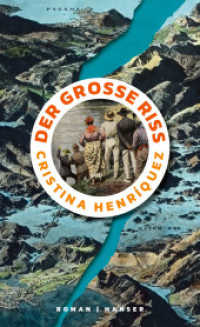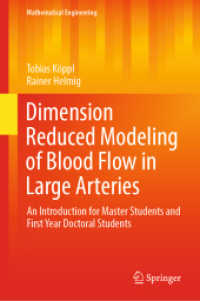- ホーム
- > 洋書
- > 英文書
- > Politics / International Relations
Full Description
Available open access digitally under a CC-BY-NC-ND license.
This book examines the significance of both historical and contemporary inequality in shaping diplomatic disagreements in international relations.
The author demonstrates that the North-South divide has endured into the 21st century by drawing on three decades of data measuring the foreign policy positions of states on divisive global issues, including new text-based measures of international priorities within the United Nations General Assembly. This divide reflects the dissatisfaction of many states of the Global South with the post-Cold War international order, owing to historical legacies of unequal development.
Wide-ranging and rigorous, this new empirical investigation demonstrates the ongoing relevance of material inequality for international politics and the multilateral system.
Contents
1. Introduction
2. The Concepts of North and South
3. Theorising the North-South Divide in International Relations
4. A Strategy for Researching International Disagreement
5. Debating Across the Divide: A Text Analysis of the United Nations General Debate
6. Geography and the North-South Divide: How Deep Are the Roots of International Inequality?
7. State History in the Making of the North-South Divide: Divergence and Reversals During the European Colonial Era
8. The World Economy and the North-South Divide: Structuralism Revisited
9. Diversity in Discontent: Exploring Foreign Policy Variation Across the Global South Using Cluster Analysis
10. Conclusion: The Enduring Relevance of the North-South Divide
Appendix







